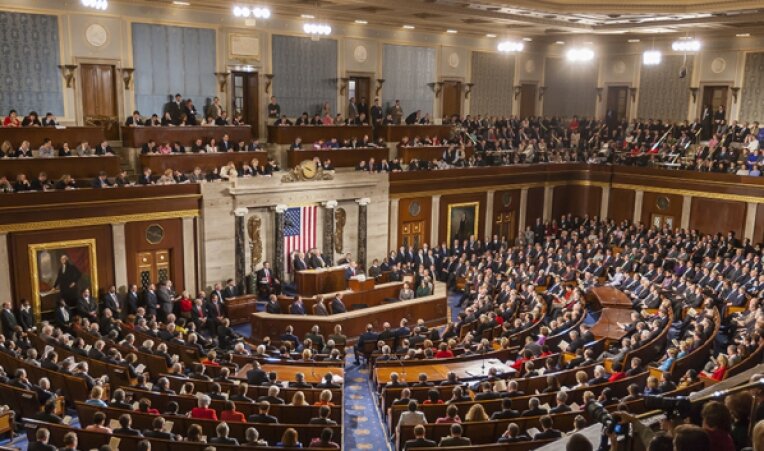U.S. Congress redoubles efforts to limit Trump’s Iran war powers

Twenty-eight lawmakers from both the Republican and Democratic parties are pushing legislation to ban the use of funds for military action against Iran without congressional authorization, according to an internal letter obtained by Foreign Policy.
Similar legislation has failed before, but lawmakers are hoping they can fold this into a must-pass defense policy bill expected to be finalized in the fall, Foreign Policy reported on Monday.
“Bipartisan majorities in both chambers have spoken up to defend Congress’ constitutional authority over matters of war and peace,” the senators and members of congress wrote in the letter, addressed to the chairmen and ranking members of the Senate and House Armed Services Committees, which oversee the defense bill. “With regional tensions high, the risk of the U.S. entering into war with Iran without authorization remains acute.”
The letter represents the latest political battle to pare back the president’s ability to wage war without congressional authorization amid mounting fears that the Trump administration could stumble into a conflict with Iran. The new push sets up a potential showdown over Iran policy in Congress that will play out during negotiations over the final defense policy bill, the National Defense Authorization Act (NDAA).
In Washington’s hyperpartisan atmosphere, this campaign by some lawmakers to reassert Congress’s role in constitutional decisions over matters of war stands out as an anomaly.
It is championed by both prominent liberal Democratic critics of President Donald Trump, including New Mexico Sen. Tom Udall and California Rep. Ro Khanna, and staunch Republican Trump supporters, such as Rep. Matt Gaetz of Florida.
“This is the most urgent national defense issue we are discussing in Congress, and its this rare issue where you have real bipartisan agreement and also very strange bedfellows from the farther right and farther left,” said one congressional aide.
Tensions between the United States and Iran flared up this summer, after two attacks on oil tankers in the Gulf of Oman in May and June. Washington blamed Iran for the attacks, while Tehran denies any involvement.
Tension increased as Iran seized Revolutionary Guard Corps seized British-flagged Stena Impero in the Strait of Hormuz last month.
In June, Trump ordered—then abruptly canceled at the last minute—a military strike against Iran, which many experts fear would turn into a regional firestorm. Despite that restraint, lawmakers from both sides of the aisle have expressed concerns that the Trump administration is inching closer to a military confrontation with Iran, and they have been working for months through a raft of legislation and amendments to head off the possibility.
It’s still unclear whether this amendment has more support than prior legislation, though attaching it to the NDAA would give it additional leverage, as the defense bill is considered must-pass legislation.
In June, the Senate rejected an Iran war powers amendment put forward by Udall and Virginia Democratic Sen. Tim Kaine—it got 50 votes and needed 60 to pass. A similar bill sponsored by Khanna and Gaetz passed the House by a vote of 251 to 170.
